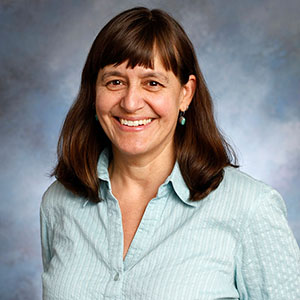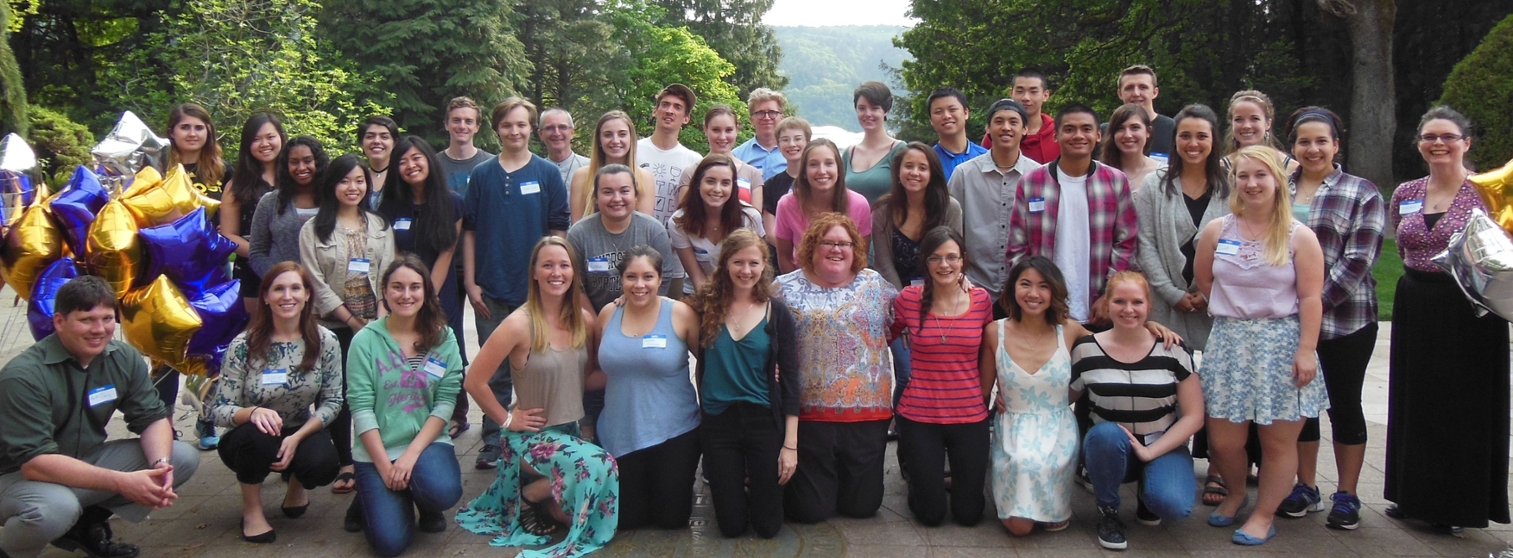Laurie Laird
 Current Position: Director, Moreau Center for Service and Justice
Current Position: Director, Moreau Center for Service and Justice
Alma Mater: Santa Clara University
Major/Undergraduate field of study: Psychology (major) Spanish (minor)
What was it like being among the first in your family to go to college?
I grew up knowing that I’d go to college. There was never really any question. My mom had been a stellar student and had wanted to go to college. She and my father married young, started a family, and she worked. Her hopes and desires were passed along to me. My mom took night classes and earned her AA degree, and when I was in college she enrolled in a special program that allowed her to finish her BA the year before me! I LOVED school---always have. My parents tell the story that I begged them to enroll me in pre-school. I excelled as a student and was enrolled in the gifted and talented program in elementary school. The assumption was that I was college bound. When it came time to apply for college, my family didn’t really understand the whole process for choosing a college or how we’d pay for it. I thought I’d get lots of scholarships since I was the top of my class at my public high school. But my test scores were not exceptional. I did get some scholarships but I had to take out loans and even signed up for the ROTC out of desperation to pay for college. I was the first in my family to do many things, so it didn’t seem that out of the ordinary when I went away to college to be trailblazing there, too. While I have always had my family’s support, I’ve had to figure a lot of things out on my own, so college was like that, too. I didn’t know what classes to take, so I took the advice of some of the students in my dorm who seemed so confident. Everyone was enrolling in Calculus, so I did, too. It turns out I didn’t need it. I got my first F 3 weeks into the fall quarter of my freshman year, and I was devastated. Fortunately I had always seen my teachers as people I could trust, and I didn’t hesitate to go to office hours for support, especially after getting that F. I was able to turn it into a C which was a lesson in humility for someone who had always received A’s.
Are there any unique challenges you faced as a First Generation student?
I think the challenges I encountered had more to do with my awareness of my socio-economic background than being First Gen. I grew up in a suburban community in southern California with one high school. My neighborhood was mostly working and middle class families, and I had plenty of friends whose parents had not gone to college. I was surprised when I arrived at Santa Clara University and many students I met went to private Catholic high schools and their life experiences seemed very different from my own. The stories they shared about vacations and opportunities they had and the disposable income available to them was foreign to me. At times I resented them. I worked 20+ hours a week, and I never understood how it was that they didn’t have enough time for homework. I questioned if I belonged. Fortunately, I met other students in my dorm who were also the first in their families to go to college and who had to work to help pay for it, so we became a support system for each other.
Do you have any advice for FGEN students at UP that are facing challenges?
Seek support from other FGEN students as well as faculty and staff. There are so many resources available to you but sometimes faculty and staff aren’t aware of what you need. Don’t be afraid to ask. There is financial assistance available for many programs, and we rely on students to let us know when they need additional financial support. We realize FAFSA only tells part of the story. I know it can be hard to ask. I know FGEN students can be very independent and self reliant which can lead to their not asking for support. When you face challenges or struggle with a subject, there’s no shame in it. When I got my first F, I was absolutely crushed. But my professor graded on improvement and was willing to put in the time to help me if I was willing to make the effort. There are many people at UP who are invested in your success, too. Let us walk with you. I encourage you to share your story and perspective with others. I thought I was alone in feeling the way I did until I started talking with others and discovered that there were many like me who felt they were on the outside or whose experiences were very different from those of the folks who spoke the loudest. Know that we all benefit from hearing diverse ideas, perspectives, and experiences. Your unique experience makes UP a better place. Don’t hesitate to let others know if you have questions or needs. Those of us working in higher education are here because we love to work with students. You make our day when you stop by our offices and share a little bit about yourself.
Did a mentor play a role in your FGEN experience? How so?
There were many mentors who encouraged and supported me along the way. My family was a huge support. While they may not have understood exactly what I was going through, they listened without judgement as I navigated this new world. One place where I found a supportive home was in the costume shop on campus. I worked there for 3 years building costumes for campus theater and dance productions. The costume shop was always a safe space where I worked hard alongside peers, listened to music, and felt heard whenever I had a concern. And my faculty mentors were many. One in particular was Dr. Francisco Jimenez. Through taking his Spanish classes, I began to explore my identity as part of the Latinx community. With his support and encouragement, I grappled with my feelings of being an imposter and of not being able to really claim my Latinx identity. He validated my feelings and accepted me, and he encouraged me to express what I was going through in writing. He also encouraged me to minor in Spanish, one of the best decisions I ever made. Being proficient in Spanish has allowed me to develop some of my most meaningful friendships and has opened more doors and opportunities to me than anything else ever has.
How do you feel your experience prepared you, both professionally and personally?
It helped me realize that having access to experiences can really broaden your worldview, expand your sense of empathy, and give you a greater understanding of your abilities and how to contribute. When I met my peers who had been given more opportunities than me, I thought they were smarter and better somehow. I learned that just wasn’t true and that there are many ways of seeking out those life experiences when they seemed out of reach. I’ve learned the skills to ask for support and gained the confidence to know I am not lesser when I do.
Connect with Laurie

 Current Position: Director, Moreau Center for Service and Justice
Current Position: Director, Moreau Center for Service and Justice